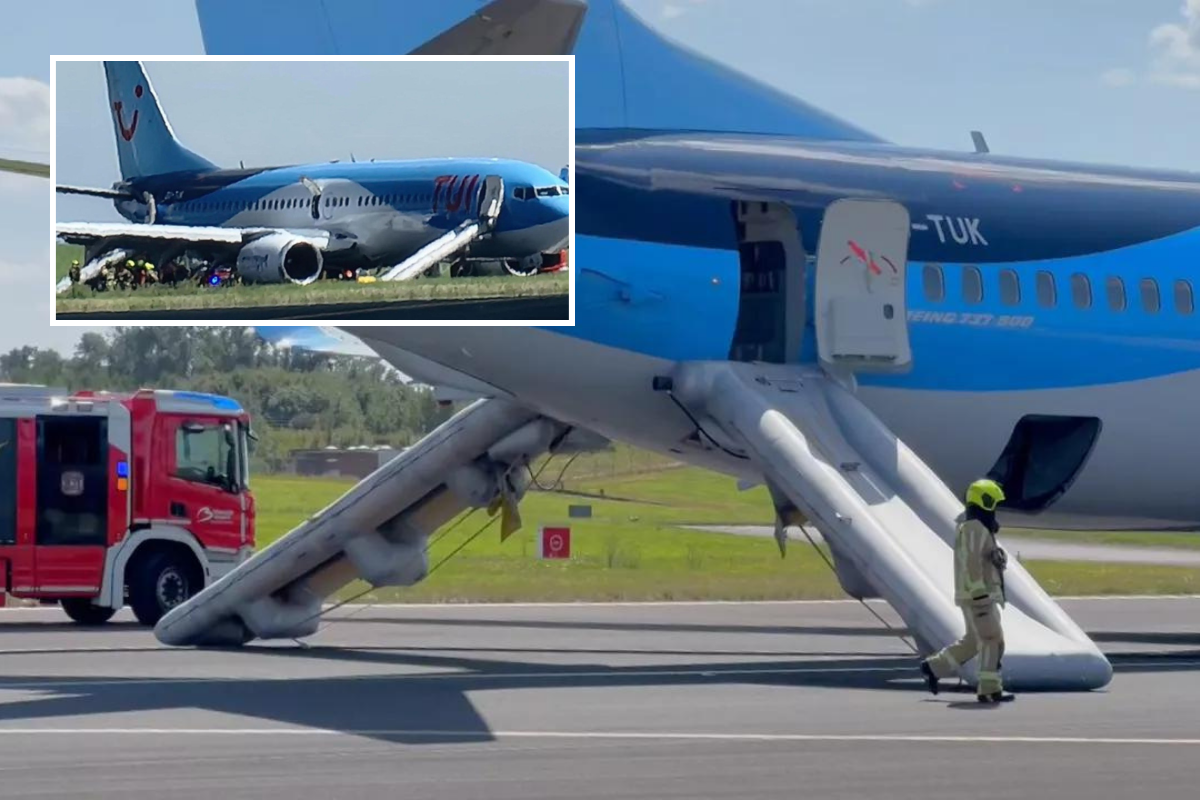
Passengers were ordered to evacuate a TUI Airways Boeing 737 at Brussels Airport on Tuesday afternoon after the pilots received an alert of a potential fire in the cargo hold shortly before landing.
TUI Airways flight TB-2252 was nearing the end of a three-hour flight from the popular Greek holiday island of Crete when the pilots received a cargo hold fire indication just seven minutes prior to landing in Brussels.
The pilots immediately requested emergency services to meet the aircraft, but after five minutes, the alarm indication stopped, and the crew initially questioned whether a full emergency response was still necessary.
Once on the ground, however, the fire indication reactivated, and the plane stopped on the runway so that the passengers could be quickly evacuated from the aircraft.
Emergency slides were used to evacuate all 123 passengers and crew from the plane, as emergency services got to work. Following extensive enquiries, however, no fire or smoke could be detected, and the indication was found to be a false alarm.
Thankfully, none of the passengers or crew was injured during the evacuation, although local media reported that there was some panic inside the plane as the call to get out was made by the pilot and cabin crew.
Cargo hold fires are treated very seriously as there is no way for crew to identify the source or fight the fire when the plane is in the air.
Nearly 44 years ago, Saudi Arabia’s flag carrier Saudia suffered one of the worst aviation disasters in modern history when all 301 passengers and crew died after their Lockheed L-1011 Tristar caught fire shortly after takeoff from Riyadh en route to Jeddah.
The exact reason why everyone onboard Saudia Flight 163 perished has never been fully established, but a leading theory is that the crew succumbed to toxic smoke and carbon monoxide poisoning before they could start an evacuation.
The cause of that fire has also never been fully established, but it’s believed that butane gas tanks being carried in the cargo hold caught fire, starting a raging inferno that soon broke through the cabin floor.
Cockpit voice recorder evidence highlighted how the flight attendants valiantly tried to suppress the flames with fire extinguishers but their efforts were to no avail.
In that incident, the pilots failed to stop the plane on the runway fast enough or order an evacuation before everyone succumbed to toxic fumes that rendered them unconscious.
Related
Mateusz Maszczynski honed his skills as an international flight attendant at the most prominent airline in the Middle East and has been flying ever since... most recently for a well known European airline. Matt is passionate about the aviation industry and has become an expert in passenger experience and human-centric stories. Always keeping an ear close to the ground, Matt's industry insights, analysis and news coverage is frequently relied upon by some of the biggest names in journalism.







